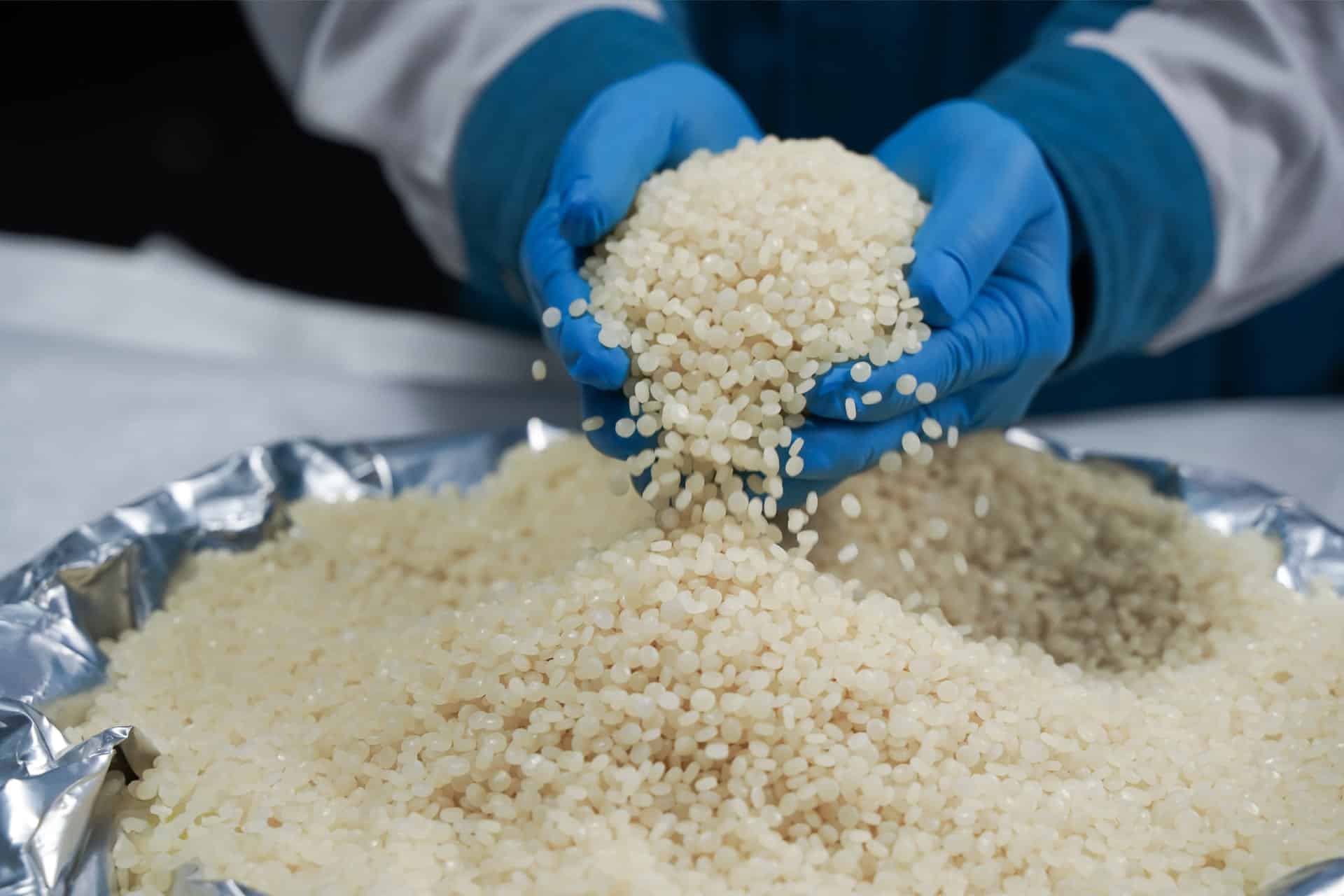PHA Applications in the Health Sector
PHAs represent a significant advance in the healthcare field, thanks to their biocompatibility, biodegradability and numerous applications. Whether for medical devices, tissue regeneration or drug delivery, PHA biopolymers offer innovative, safe solutions.

PHA Sourcing supports Healthcare Professionals
We help medical professionals make the transition to sustainable, high-performance materials. For ethical, technological and practical reasons, our biodegradable PHA solutions demonstrate your commitment to innovation. Our team is available to meet your requirements, even on a large scale: let’s talk about your project.
Polyhydroxyalkanoates (PHAs) are biopolymers produced by the fermentation of certain bacteria. They are used in a variety of industrial sectors, but are also of great interest in the health sector. Their biocompatibility and biodegradability make them a promising alternative to synthetic materials: find out how the body can make them their own.
PHA: an innovative solution for the healthcare sector
What is PHA and why is it of interest to medicine?
As mentioned earlier, the different types of PHA are obtained via bacterial fermentation of organic substrates. Once harvested, the granules can be modulated to have a multitude of properties (rigidity, elasticity, etc.). These physical characteristics are ideal for the specific needs of medicine. Also, unlike polymers derived from petrochemicals, PHAs are entirely biodegradable and non-toxic. You can see why these qualities encourage their use in medical devices and implants…
A bioplastic that is 100% biodegradable and 100% biocompatible
Because of their biocompatibility, PHAs are suitable for organic environments. When implanted in the body, they do not trigger an immune response. No reaction, no rejection. Their controlled biodegradability allows them to break down naturally in the body, avoiding additional surgery to remove the devices. In other words, PHA is the ideal material for long-term medical applications.
PHA production: a sustainable, multi-sectoral and reliable approach
In the healthcare sector, sterility and purity are crucial. Fortunately, PHAs are produced under precise control and specific production conditions. So there’s no need to worry about the safety of these demanding medical applications. In addition to healthcare, PHA’s various fields of application include an ecosystem of industries such as :
- automotive (parts and components)
- agriculture (mulching film)
- horticulture (pots)
- cosmetics (bottles)
- packaging (organic packaging)
- fashion (textile fibres)
PHA in the Healthcare Sector: The Different Applications
Use of PHA for sutures and medical devices
Biodegradable PHA sutures hold great promise for the medical world. Unlike traditional sutures, which often require a second operation to be removed, bioplastic sutures are self-destructing. They decompose naturally after healing, with no harmful residue. With fewer risks of infection and fewer postoperative complications, the good thing about natural sutures is that they are self-destructing.
PHAs are also used in the manufacture of implantable medical devices (bone plates and screws). Thanks to their gradual degradation, these devices integrate perfectly with the surrounding tissue without contaminating the body. Healing is even faster and side effects are reduced.
Application of PHA in tissue regeneration
PHAs are also used to create biological structures, such as implants, from biodegradable materials. These serve as a support for cell growth and the formation of new tissue. In tissue regeneration, these PHA materials gradually degrade, making way for new tissue. They therefore play a crucial role in the reconstruction of bones, skin and soft organs. PHA materials are particularly well suited to these applications, as they are both flexible and have good mechanical strength.
PHAs in bone regenerative medicine
One of the most promising applications for PHA is in bone regeneration medicine. Recent studies have shown that PHA products can be used to support this process. How can they be used? The biodegradable structures help guide the formation of new bone while being naturally resorbed by the body. They can also be combined with stem cells (or growth factors) to improve healing.
PHA in the controlled release of drugs
For the controlled release of drugs (capsules, tablets, implants, ampoules, etc.), PHA is also making a name for itself. Thanks to their ability to degrade in a predictable way, PHAs can be used as natural drug envelopes. They allow substances to be released gradually and in a controlled manner, thereby reducing the side effects associated with high single doses. Finally, their biodegradability means that the device does not need to be removed after treatment. Once again, operations are kept to a minimum…
PHA for prostheses and implants
Implants and prostheses are often made from metallic materials or synthetic polymers. Unfortunately, these materials can cause problems with biocompatibility, inflammation and infection. Not to mention rejection. PHAs, on the other hand, offer an alternative. They can be used to create prostheses that are lightweight, resistant and entirely biodegradable. This reduces the risk of infection and post-operative inflammation. The little bonus: PHA prostheses can be moulded and modified to suit the precise needs of each patient.
Contact
Let’s Work Together on Your Next Sustainable Project
Ready to switch to PHA or explore how it can revolutionize your products? Contact us to discuss how we can support your sustainability goals with scalable PHA solutions.